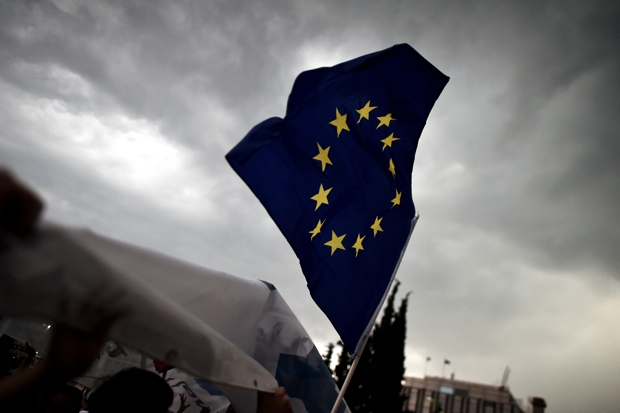It’s only been a week and a half since the starting gun was fired, yet for people outside of the Westminster bubble, the debate over the EU referendum is no doubt already beginning to tire.
On the one hand we have the ‘outers’ banging on almost exclusively about sovereignty and immigration. And on the other side we hear the same economic mantra repeated over and over again. I’m a convinced ‘remainer’ and of course I know that these arguments matter enormously – but I fear that this debate over the future direction of our country could be lost to the ‘outers’ unless my side make a more visceral argument for Britain remaining a member of the EU.
For a start that means remembering why the EU came about in the first place.
Amidst the metaphorical bombardment being launched by both sides of the EU debate, it’s easy to forget the literal bombs and bullets – and cross continental carnage – which led to the creation of the EU. We have grown up and grown old within a Europe that has enjoyed the longest period of peace since the time of the Roman Empire. We forget that at our peril.
But Britain shouldn’t just remain in the EU because of it’s role in peace-building – nor simply because the economic arguments are so overwhelmingly in favour of staying. This debate must be more than a transactional calculation.
The European story should also be celebrated because of its role in allowing Britain to be Britain – while working with our neighbours on the shared challenges we face. The way in which countries with different histories and cultures have come together – and have chosen to pool resources for their common good – is historically unique. Most people in the UK may not feel as ‘European’ as those on the continent, but our positive, outward looking place in the world – and our generally tolerant, multicultural society – is enhanced, not hindered, by the EU.
To protect all that the EU has given us – and to prevent us slipping backwards – the ‘In’ side has to win this referendum. But a narrow victory isn’t enough. The pro-European campaign in 1975 won 66 per cent of the vote. We might not repeat this in 2016. But we must aim for more than just making it over the finishing line with 51 per cent of the vote. The clearer the victory, the easier it will be to move on from this sterile debate on membership, to the real issue of how we can build the kind of Europe that we want.
And this brings me to another concern I have about the direction of the EU debate: the relative silence from the Labour leadership. Perhaps it’s because, like a minority of others on the left, they believe that the EU is a ‘capitalist club’ which has undermined progressive politics in Britain. Yet there is no evidence that the British people are currently held back from fulfilling a more progressive political and social agenda by the European Union. Indeed it seems to me that the opposite is true. It is the EU which is introducing caps on bankers’ bonuses, stronger action on tax evasion and avoidance, and more lobbying transparency. Even on the Transatlantic Trade and Investment Treaty, it is David Cameron who is the loudest cheerleader, and our European neighbours (3 million of whom have signed a petition opposing TTIP) who offer us the best chance of defeating it.
The views of the Labour leadership matter – and complacency could increase the chances of Britain sleepwalking out of the EU. I’ve no doubt that sitting back and watching civil war in the Tory party is tempting – but to do so in the hope of boosting progressive politics would simply be cutting off our nose to spite our face.
We have many weeks to go in this campaign. I hope that as we head towards June the ‘In’ side – and in particular those of us on the left – take this chance to tell a positive story about the EU; both what it has done, and what – if we work together across Europe – it could do, and it’s potential for bringing about a more socially justice and environmentally sustainable future.
Caroline Lucas is the Green party MP for Brighton Pavilion. She will be giving a speech entitled ‘The EU: friend or foe for progressive politics’ tonight at the London School of Economics. Details are available here.
 Join The Spectator for an evening debate chaired by Andrew Neil:
Should Britain leave the EU?
26 April 2016 | London Palladium, Argyll Street, W1F 7TF
Book now
Join The Spectator for an evening debate chaired by Andrew Neil:
Should Britain leave the EU?
26 April 2016 | London Palladium, Argyll Street, W1F 7TF
Book now






Comments